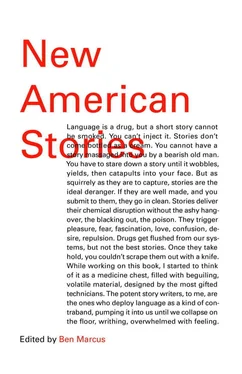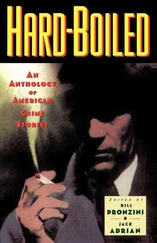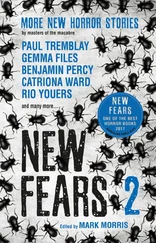The Chinaman and his nephew stood on the bank, checking each other for wounds. The boy was trembling. I approached them. They watched me a moment, then fled.
Errol looked from the gash to me. He motioned for me to come to him, but I could not. “You see,” he said, serenely. “They had it all along. It’s so clear.”
Then I fled. I could not endure the fact of his believing, believing, believing beyond the rotten end. That’s all I can say about it.
When I finally came upon San Francisco Bay, it was so dense with abandoned vessels that their masts made a leafless forest atop the water. I found work as a torchboy for the Knickerbocker Five Engine Company, and with them I fought the Christmas Eve fire of 1849 and the Saint Valentine’s blaze. When finally I had earned enough money I bought passage aboard a thousand-ton sidewheeler called Apollo, where I was the only human cargo among sacks and sacks of gold bullion. Eventually, I disembarked in Boston Harbor. I intended to return to Ohio from there, but it was many years before I was able to meet my mother, the woman whose son I had abandoned in the wilderness. I went to church, and to school. By the time I had the courage to see her I was a grown man.
While I was still in San Francisco, I read in the California Star that in Angel’s Camp two tongs, father and son, had been captured by a mob of citizens and tried for the crime of robbery and attempted murder. They were hanged, said the report, though I knew that would be their fate the night I sat hiding in the woods above Sacramento, listening to nocturnal beasts moving through the scrub, when the snow ring around the gibbous moon triggered my final augury. The Star reported that the tong boy recited a passage of Homer before he was killed.
In the years following the Rush, it became fashionable for Easterners to decorate their parlors with gilt-framed daguerreotypes of Forty-Niners. In these years I’ve seen many such portraits of Argonauts posed proudly with pan or pick or troy scale, their whiskers cut back in a semblance of civility. Each time I encounter one I hope to see my brother in it, although I know it is unlikely he ever had himself pictured off. It is a false art, I realize. Most of the men used props on loan from the portraitist. Some were models sitting before drop cloths in New York City. But a great deal of what I like about those faddish daguerreotypes is that they show no trace of the darkness I remember of the diggings, none of the loneliness or the madness or the hunger. Even the pistols in the men’s belts seem tucked there in jest. I’d very much like to see my brother there someday, in his red miner’s shirt with his hat tipped back, a fresh sash at his collar, brandishing a fine new pickaxe and a lump. I’d like to see him poised at the center of a gleaming gilded frame, as if color was every bit as bountiful as we’d been told. I’d like to see him posed with his endless belief and at last surrounded by bright soft gold. And maybe if I saw him there I might see the Argonaut believer within myself, too, for we looked so similar in the territory.
What I now know of Errol I know from a postcard he sent our mother twenty-five years ago, which was postmarked Virginia City, NT, and said only that the Lode had a hold of him.
Many good people championed the writers in these pages and sent terrific stories my way. I am especially grateful to Matt Bell, Mary Gaitskill, Rivka Galchen, Justin Taylor, Rob Spillman, Kate Zambreno, Blake Butler, Thalia Field, Gary Fisketjon, Joshua Cohen, Heidi Julavits, Sam Lipsyte, Deborah Eisenberg, Rebecca Curtis, Martin Riker, Ethan Nosowsky, Brian Evenson, Halimah Marcus, Ann DeWitt, David McLendon, Calvert Morgan, and Max Porter.
Andrew Eisenman was a sharp and relentless scout from the beginning. He built exhaustive lists, chased down stories, and offered intelligent persuasion when I most needed it.
Thanks to Ryan Smernoff, who helped prepare the manuscript.
To Peter Mendelsund, thank you once again for your stunning work.
Denise Shannon, in a twenty-year streak of generous, smart, and deeply supportive acts, helped me navigate the dark, arid land of permissions, which sometimes seemed conceived solely to prevent anthologies like this one from ever coming into being.
Huge thanks to Tim O’Connell, for inspired editorial guidance and the endless, intelligent determination to get this book right.
Thank you to Kathleen Cook, Aja Pollock, Stephanie Moss, and all the other folks at Vintage who helped me get this book from manuscript to beautifully printed page.
And Jordan Pavlin’s fierce belief in the short story as an art form made this book possible in the first place: thank you for everything.
DONALD ANTRIM is the author of the novels Elect Mr. Robinson for a Better World, The Hundred Brothers, and The Verificationist; a memoir, The Afterlife; and a collection of stories, The Emerald Light in the Air. He contributes fiction and nonfiction to The New Yorker, and his work has appeared in The Paris Review and Harper’s. He has had fellowships from the National Endowment for the Arts, the MacArthur Foundation, and the John Simon Guggenheim Memorial Foundation. He lives in Brooklyn, New York.
JESSE BALL is the author of five novels— Samedi the Deafness, The Way Through Doors, The Curfew, Silence Once Begun, and A Cure for Suicide —as well as several works of verse, bestiaries, and sketchbooks. His prizes include the 2008 Paris Review Plimpton Prize for Fiction, and his verse has been included in the Best American Poetry series. He is on the faculty at the School of the Art Institute of Chicago’s MFA in Writing program.
NOVIOLET BULAWAYO is the author of We Need New Names, winner of the Los Angeles Times Book Prize’s Art Seiden-baum Award for First Fiction, the PEN/Hemingway Award, and the National Book Foundation 5 Under 35 fiction selection. We Need New Names was shortlisted for the Man Booker Prize and the Guardian First Book Award, and included on the New York Times 100 Notable Books of 2013 list and the Barnes & Noble Discover Great New Writers list. Bulawayo attended Cornell University and Stanford University, where she now teaches as a Jones Lecturer in Fiction.
KYLE COMA-THOMPSON is the author of The Lucky Body. He lives in Louisville, Kentucky.
ROBERT COOVER has published fourteen novels, three short-story collections, and a collection of plays since The Origin of the Brunists received the William Faulkner Foundation Award for notable first novel in 1966. At Brown University, where he has taught for more than thirty years, he established the International Writers Project, a program that provides an annual fellowship and safe haven to endangered international writers who face harassment, imprisonment, and suppression of their work in their home countries. In 1990–91, he launched the world’s first hypertext fiction workshop, in 1999 was one of the founders of the Electronic Literature Organization, and in 2002 created Cave Writing, the first writing workshop in immersive virtual reality.
LUCY CORIN is the author of the short-story collections One Hundred Apocalypses and Other Apocalypses and The Entire Predicament and the novel Everyday Psychokillers: A History for Girls. She was the 2012 John Guare Fellow in Literature at the American Academy in Rome. She teaches at the University of California, Davis.
REBECCA CURTIS is the author of Twenty Grand: And Other Tales of Love and Money (HarperPerennial) and has been published in The New Yorker, Harper’s, McSweeney’s, NOON, and other magazines. Curtis received her bachelor’s degree from Pomona College in California. She also holds a Master’s of Fine Arts from Syracuse University and a Master’s of English from New York University.
Читать дальше










![Женя Джентбаев - neo futura [stories]](/books/692472/zhenya-dzhentbaev-neo-futura-stories-thumb.webp)

